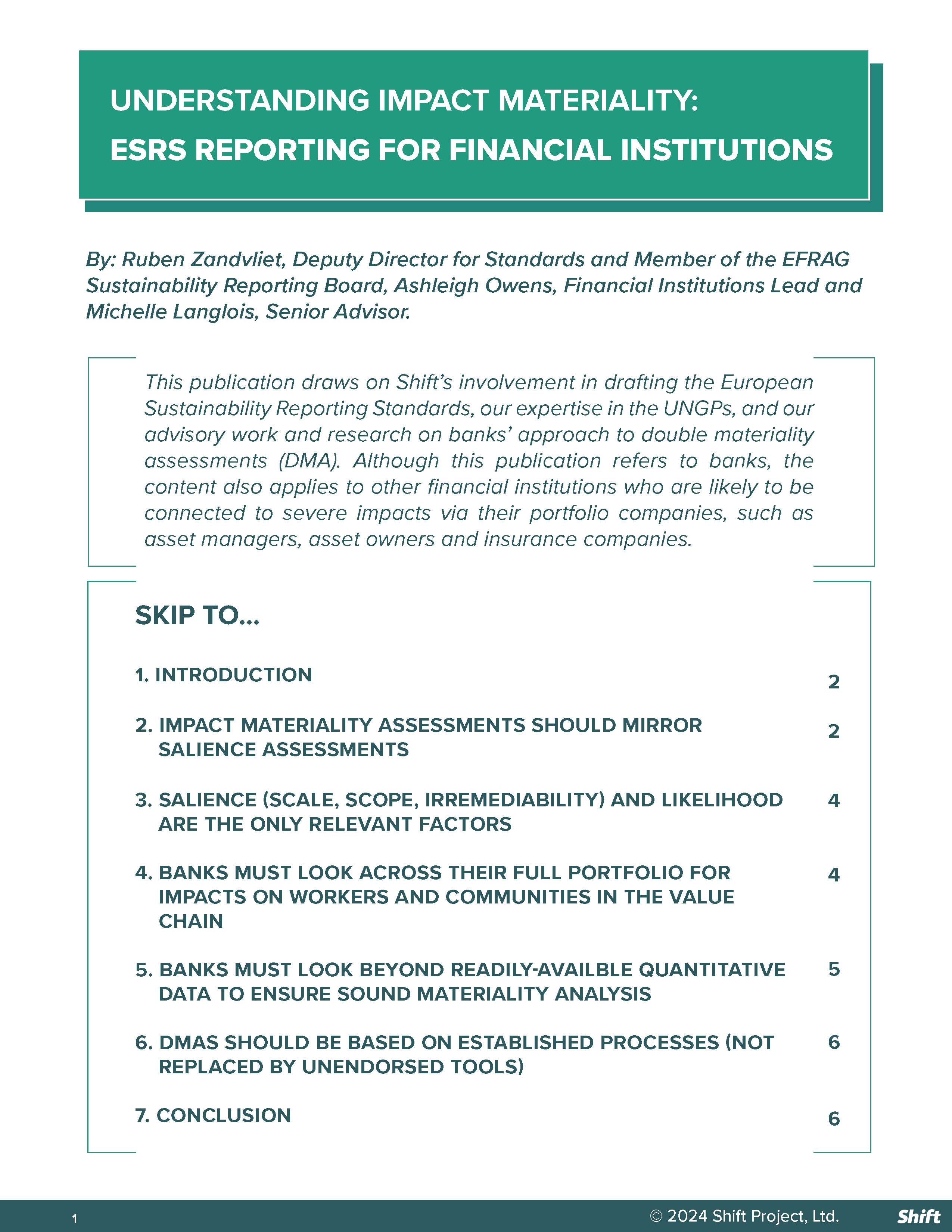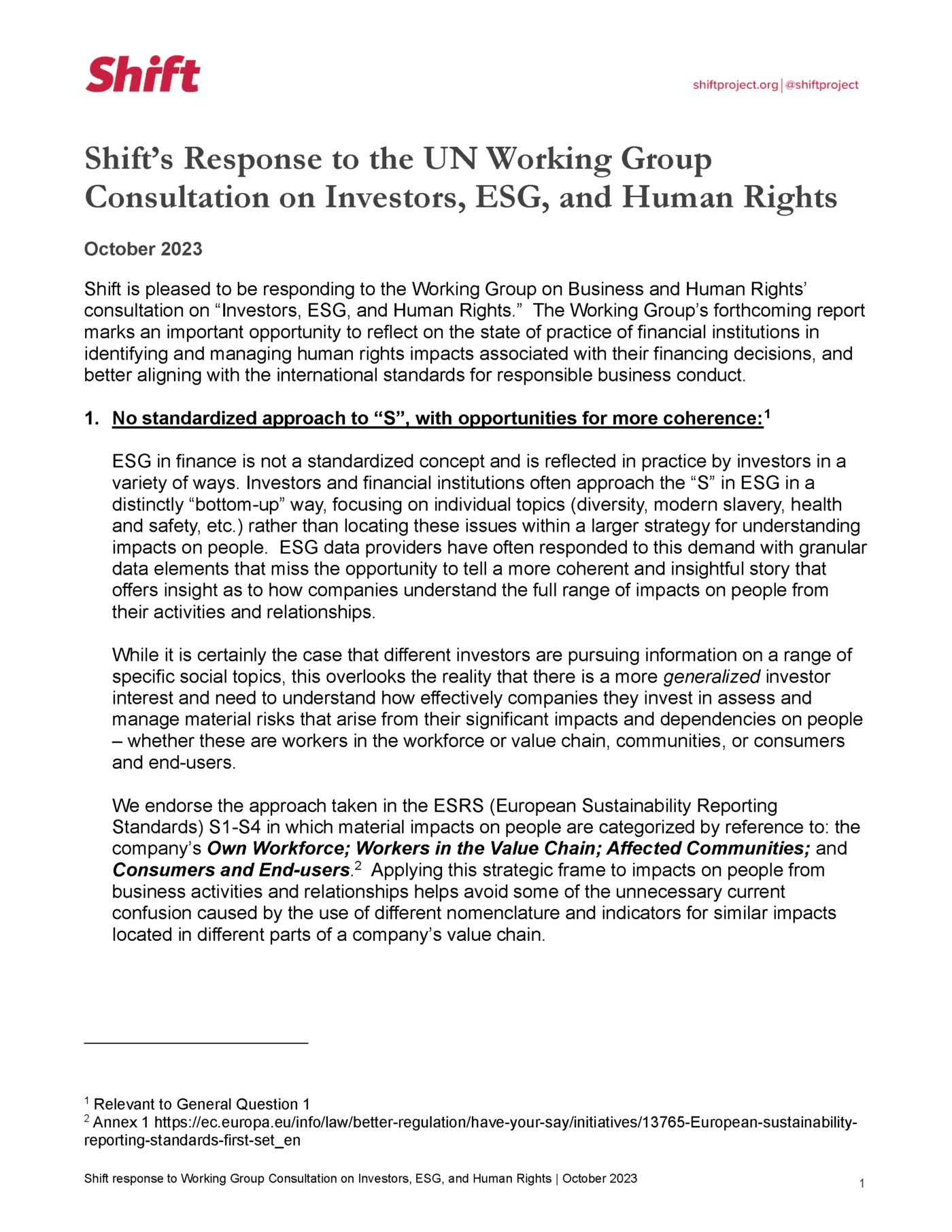This publication draws on Shift’s involvement in drafting the European Sustainability Reporting Standards, our expertise in the UNGPs, and our advisory work and research on banks’ approach to double materiality assessments (DMA). Although this publication refers to banks, the content also applies to other financial institutions who are likely to be connected to severe impacts via their portfolio companies, such as asset managers, asset owners and insurance companies.
Financial institutions and other companies are currently preparing their first reports under the EU’s Corporate Sustainability Reporting Directive (CSRD), based on the European Sustainability Reporting Standards (ESRS). Many banks, however, appear to be incorrectly interpreting and applying the requirements in the ESRS on impact materiality. These misinterpretations would severely undermine the double materiality assessment (DMA), which is the cornerstone of sustainability reporting. The result of flawed DMAs is that banks will fail to report on material human rights impacts that they are involved with via their client relationships.
This resource offers urgent clarifying guidance for banks to ensure that their Double Materiality Assessments adequately meet EU reporting requirements by leveraging the underlying international standards on corporate respect for human rights (the UN Guiding Principles on Business and Human Rights, and the OECD Guidelines).




